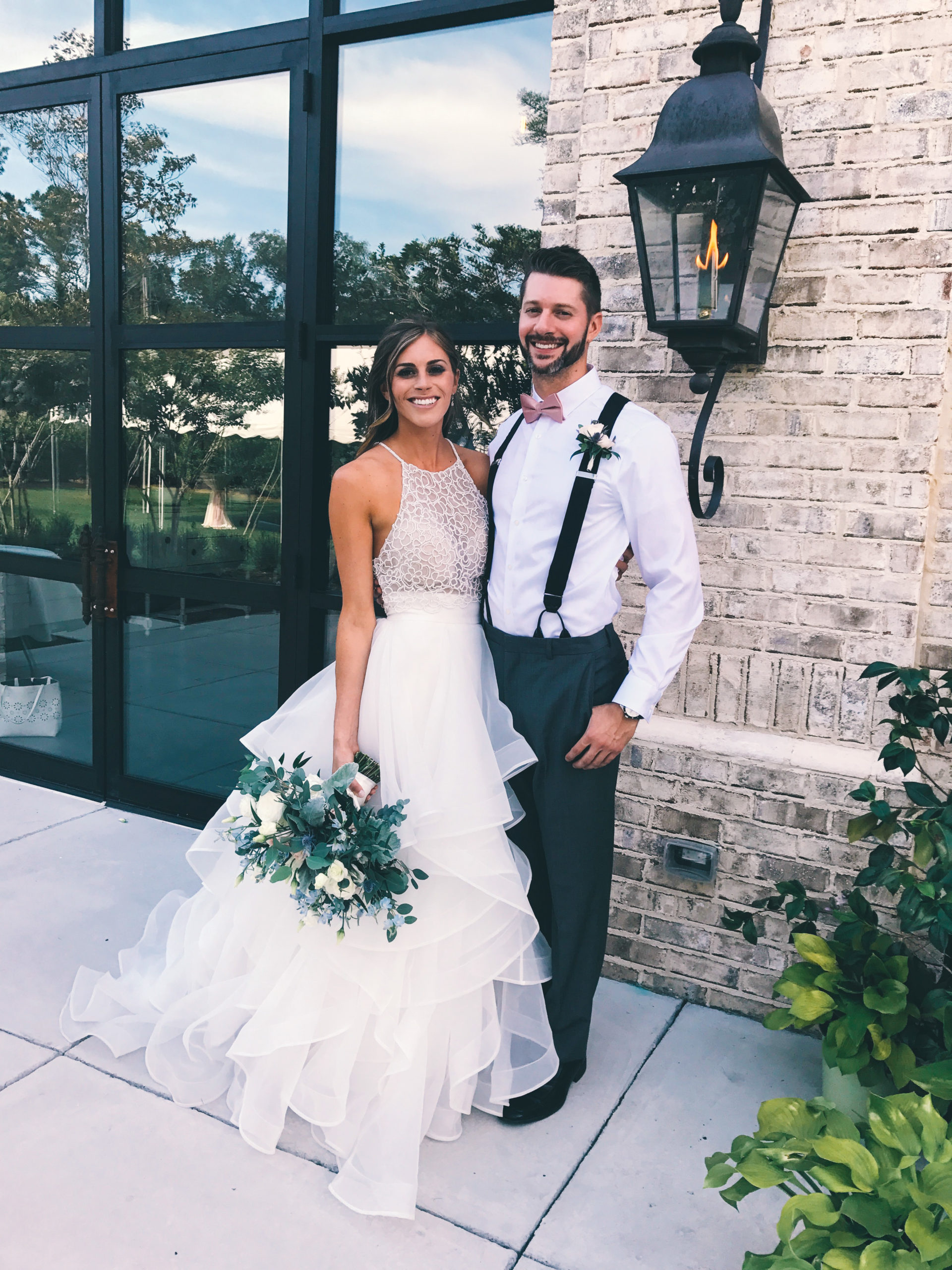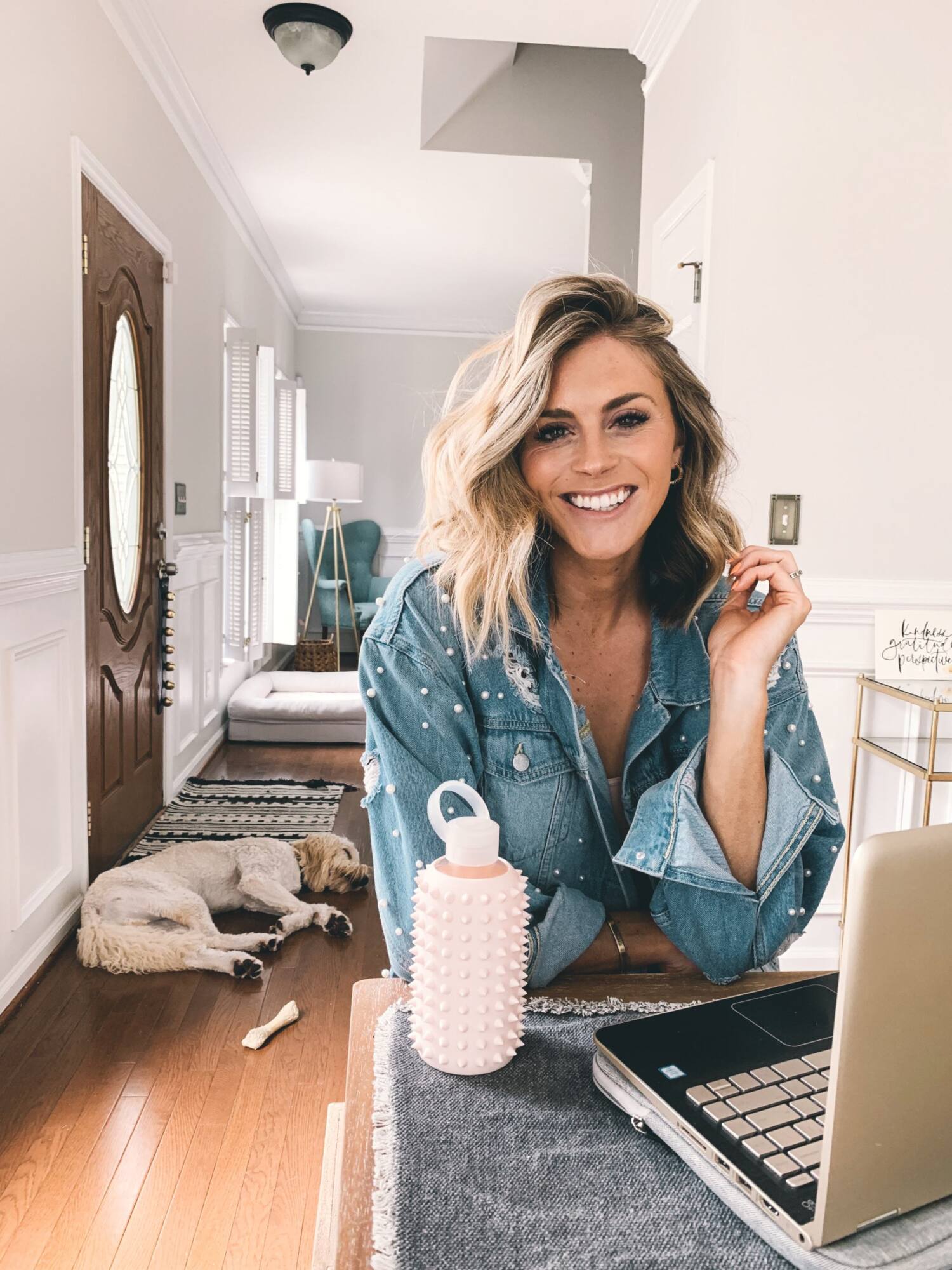Yesterday I asked y’all to send in what kind of content you wanted me to share in 2021, and this topic was one that popped up. I feel like in the past whenever I’ve blogged about financial topics they’ve always been popular so figured I’d dive into this topic more today. I’ll be the first to say that I am no financial guru but I’ve gotten much better (and learned more) about finances as I’ve gotten older (ie. being in my 20s vs. now 30s lol).
For starters, we don’t have any strict budget in any area. Like, sometimes I’ll get messages like how much money do we allot to groceries per week, month, etc. and the answer is we don’t have a specific number for groceries (or really any category). Ironically I was actually talking to my mom about this the other day (whether they ever had specific budgets). My parents have always been very financially savvy so I definitely look to them for guidance so I was just curious what my mom had to say about budgets. She said that they never had specific budgets, but when it came to things like grocery shopping she wasn’t going to like Whole Foods and buying only organic. She would just try to make more “reasonable” choices when buying everyday items. And for whatever it’s worth, she is still that way to this day. My parents don’t have car payments, don’t have a mortgage (literally no debt) and they while they could buy whatever car they wanted, shop wherever, they just don’t. They aren’t frugal by any means, but just because they can buy something, doesn’t mean that they do (this is something that I always try to remember for my own spending!).
Anyway, so while we don’t have any strict budgets, there are a few “financial parameters” I pay attention to before spending money. These were guidelines given to us by our accountant and I think they are super helpful and not complicated. She has the same mentality that you don’t need to necessarily have budgets for everything as long as the following is in place (adding some thoughts onto this in this other blog post)
- 3-6 months of expenses saved.
- Credit cards paid off monthly.
- Putting money towards retirement (a lot of jobs you can automatically do this with a 401K but if you’re self-employed you should be doing this separately).
- Optional: if you have kids and saving for their college is a priority or things like this, then you may want to include this in deciding what you have leftover to spend every month.
With that being said, I’m not going to sit here and lie and say “we do all of the above steps perfectly!” We always have 3-6 months of expenses saved, and we have met with a financial advisor about setting aside money for retirement (since I no longer have my 401K at the hospital), but our credit cards and not fully paid off every month. Stephen and I both have business credit cards which we have used for expenses (like funding the athleisure line) vs. taking out a loan at a bank. It’s one of those situations where we could technically pay everything off but we feel like it is more important to have cash available and slowly pay off those business cards.
Knowing that we have consumer debt with our businesses though, we allot a certain amount of our income to be put towards those cards each month, but afterwards as long as we have that 3-6 months (usually we aim for 6 months because it’s what we feel more comfortable with since my job is a variable income business), then we don’t stress too much about spending with things like going out to eat, clothes, etc. When it comes to bigger purchases though (like furniture), we are definitely more conservative even with that 6 months of expenses saved. So for example, I would love a new couch for our living room but I also understand that it’s almost $5K. So while I could spend that and still have 6 months of expenses saved, right now I would rather allot additional money to my business credit card to get that paid off.
Other financial things we’ve been mindful of though (that don’t necessarily fall into the list above), is we cut down large monthly payments wherever we can. For example, we don’t have any car payments. Our past cars we have bought are much older/used so it was easier to pay cash, and the new car we just decided on (more on that soon, it should be here this month!) we decided to pay for in cash as well. I know this isn’t always realistic and I’m not saying this to be braggy (obviously there are other areas in the financial department we could improve on!) but just sharing because this is what we do and have found to be best for us. This isn’t to say we will never finance a car, but this is just what we’ve done in the past and what we’re continuing to do right now. The thought behind it is that it’s just one less consumer debt that we have to worry about, and also not having a car payment cuts down on your bigger monthly expenses. So if anything ever did happen where our income changed more drastically, the one big expense we would need to worry about would be our mortgage. It’s easier to cut back on things like going out to eat, buying clothes, etc. Those expenses are all within your control. But if you have a large car payment, there really isn’t any wiggle room on making that payment.
I know the above explanation of how I personally determine on what to save vs. spend may not have been the super clear, concise answer you were looking for (I mean, if you do want that, follow the above steps 1-4 lol). But those are the steps we are working towards, while trying to still enjoy life in the meantime. I do think it’s important to be financially responsible, but I also think the point of working hard and making money is to enjoy it. So we try to find a balance between the two.
Also, for whatever it’s worth, as I’ve gotten older, I’ve gotten better at deciding what to spend my money on. Now, I would rather invest in items for the house, or clothing items that are maybe a little bit more of an investment but I know that they won’t go out of style and that I will wear for years. I mean, of course that isn’t always the case but I definitely now lean more towards the quality over quantity mindset.
Anyway! I hope that this blog was helpful. If there is anything else I can answer on this topic, feel free to ask below!!








Thanks for sharing this 🙂 Super helpful and I appreciate the transparency.
of course! Thanks Rebecca 🙂